- Home
- J. Robert Kennedy
The Colonel's Wife Page 6
The Colonel's Wife Read online
Page 6
“That’s none of your concern!”
Vogel’s smile climbed up one side of his cheek. “Of course it isn’t, but if the Kriminalpolizei can be of any assistance, just ask.”
“And you are?”
“Kriminalinspektor Vogel.”
The man’s eyes flared slightly and his entire demeanor changed as he realized he was outranked. “I apologize for interrupting you, Kriminalinspektor. Can we be of any assistance?”
Vogel shook his head. “No.” He decided the terse answer was the best, leaving no wiggle room for the lieutenant.
“Very well.” A salute and heel click were delivered, then the lieutenant rushed off with his men.
“Well, that was idiotic.”
Vogel turned to Stadler as the truck was closed up, their body inside. “You mean that he didn’t bother to look to see if we had who he was looking for in the back?”
“Exactly.”
“See what happens when you think in such black and white terms? It would never occur to him that our lowly duties could ever intersect with his orders. He’s looking for someone of such importance in his mind, he couldn’t possibly fathom that they could be a victim of such a petty thing as looting.”
Stadler frowned as the coroner’s wagon pulled away. “I suppose so. He’s young. He’ll learn.”
Vogel suppressed a smile. Stadler was lucky to be a year older than the young lieutenant.
Though the war has them all growing up quicker than they should.
He prayed the war would be over before his children were of age. Hopefully, with Germany victorious, things would relax and the strict code they were forced to live under might ease up slightly as things returned to normal.
But what was normal? He had been a child during the World War, during which life was tough. Then the retribution exacted by the victors in the form of the Treaty of Versailles had made the Great Depression far worse for Germany than anywhere else in the world. He, like most, had grown up poor, hungry, and angry. Then Hitler had arrived, at first thought of as a madman, he had swiftly gained popularity, then seized power.
Somewhat democratically.
And things had improved. Dramatically. Drastically. The only truly good times he knew were under the Nazis. How life was before the first war was something he could barely remember, and children rarely knew how rough things actually were—their parents protected them from the truth as much as possible.
He had been lucky. An uncle was on the force and had got him a job, years before the Nazis took power. It had been the proudest moment of his life. Second most. His proudest was the day he married his beloved Sofia. He smiled slightly. Fourth most? The birth of his children had to rank up there somewhere.
Proudest professional moment.
That was absolutely true. It meant an honorable profession, a steady income, and every year he remained meant another year’s worth of new recruits who would be cut before him, or sent to the front if needed. It was a selfish thought, he realized that, yet it was reality. He needed this job as much as any other man, more than the fresh recruits who didn’t have families to support.
This was war, in more ways than one.
He glanced at Stadler, staring after the truck, and wondered how the young man would feel if he were to lose his job, or be sent to the front.
He’d hate the former, probably love the latter.
Though as indoctrinated as the boy was, he had chosen to be a police officer rather than a soldier. That spoke volumes as to how deep his convictions truly went. He’d serve the Reich by supporting it through his words, not his actions. He wasn’t willing to put his life on the line.
“What now?”
Vogel flinched, his train of thought having taken him far from reality. “What?”
“I said, what now?”
“We begin knocking on doors.”
Stadler checked his watch and grunted. “That’s going to piss off a lot of people.”
Vogel shrugged. “True, but someone may have heard something that could lead us to the perpetrator.”
“I don’t see how. They might have heard the gunshot, but they wouldn’t have seen anything. It was blackout conditions.”
Vogel headed for the nearest residential building. “There might have been an argument. A motive might have been uttered. A name. Anything. Or someone might have heard their neighbor returning at an odd hour. Anything is possible.”
Stadler caught up to his senior partner’s long stride. “I suppose you’re right. But everyone would have been returning from the shelters. Proving they killed someone will be impossible unless they confess.”
Vogel shook his head. “Perhaps, though you’re forgetting two things.”
“What’s that?”
“Our victim was shot. You don’t just toss a perfectly good weapon away if you’re willing to kill. You keep that.”
Stadler stepped ahead and pulled open the door to the first apartment building. “And the second?”
“They stole his clothes. There was a reason for that. They intended to keep them, perhaps to sell, perhaps to wear.”
“Or maybe they wanted to hide who he was.”
Vogel stopped, smiling at the first useful thought his partner had had all evening. “Very good thinking, Otto. We might just make a detective out of you yet.” He climbed the first flight of stairs. “And that’s why we need those fibers analyzed. If he was wearing some sort of uniform, we might be able to match it up with other clothes that the murderer took.”
“Do you think he’s military?”
“Perhaps, though that would be pretty ballsy. It’s more likely, if he was wearing a uniform, that it’s some other uniformed service. So many people wear uniforms these days, it’s a wonder the shops even carry civilian clothes anymore. So many of the children run around in Hitler Youth uniforms now, it’s hard to tell them apart.”
Stadler stepped up to the first door. “He looked like he might have been the right age to be in the Hitler Youth.”
Vogel rapped on the door. “Yes, he did. But let’s hope you’re wrong about that.”
“Why?”
“Because then we’re dealing with the murder of a child, not a man.”
22 |
SS Reich Main Security Office Niederkirchner Straße, Berlin, Nazi Germany
“How do you explain your failure?”
Konrad stood in front of General Graf’s desk, his hands clasped behind his back, his chin high, his shoulders squared, and extremely disappointed the system hadn’t yet found him. “I cannot, sir. We had scores of troops out searching for him, and they came up emptyhanded. Rest assured, we will continue the search until he is found and brought to justice.”
Graf regarded him, a lone finger tapping on the ink blotter on his desk. “I’ve been told your son is missing as well.”
Konrad tensed, his stomach churning. “Yes. My eldest, Joachim.”
“Do you think the disappearances are connected?”
He dared not tell the man the truth. If it were revealed that Joachim had been the one who had taken the shot, it could be the end for the poor boy. He had to leave the general convinced it was Griese that was responsible. “No, not directly. I believe he may have been frightened by the combination of the air raid and the excitement surrounding the shot. I’m sure he’ll turn up eventually, scared and hungry.” He forced a smile. “And a little embarrassed, I’m sure.”
“Cowards run in the face of danger.”
Konrad stiffened. “He’s only sixteen.”
“Any good German should be ready to fight and die for the Reich at that age. And should he be called upon to serve the Führer, we can’t have him and his ilk running away at the sound of the first gunshot.”
Konrad’s fingernails dug into the palm of his hand. “Of course not.”
Graf flicked his wrist, dismissing him. “Your twenty-four hours are running out.” The general’s eyes bored into Konrad’s. “And I assure you, Colonel, you don’t want
me investigating you and your obviously deficient family.”
The blood drained from Konrad’s cheeks and he snapped to attention. “Understood, sir.” He hastily exited the general’s office, his heart hammering, his cheeks suddenly flush with anger and fear. If the general unleashed his hounds on his family, they would undoubtedly discover their secret, and it would be the end for all of them, he was certain. He had worked hard over the years to track down every scrap of evidence he could find and destroy it, however there were still documents out there that could ruin them if they were found and linked back to his family.
They were a single detailed records search away from the firing squad.
I have to find Griese.
His thoughts had been dominated by his son’s disappearance, but as horrible as it sounded, Griese was a bigger concern. He had barely thirteen hours before their lives were over. They would just have to pray that their son returned home on his own volition, and didn’t reveal what he had discovered.
He left the building, rushing down the steps and into the back of his waiting car, his mind racing as to what more he could do. He had power. After all, he was a colonel in the SS. It gave him options that most wouldn’t have, yet with each one exercised, it brought more attention to him and his family.
Attention they could ill afford.
23 |
Kriminalpolizei Headquarters Prinz-Albrecht Straße, Berlin, Nazi Germany
“You sound tired.”
Vogel grunted at his wife’s observation as he leaned back in his chair, his eyes closed and burning. “You have no idea. We were out all night knocking on doors. Do you realize how upset people get in the middle of the night when you do that?”
“I can only imagine. When will you be home?”
He frowned. “No idea. We’re about to go see the medical examiner.”
“Do you have any idea who he was?”
“None. He was young though. Tragic.”
“Somebody has to do something about these looters. If this keeps up, people are going to stay home to protect their property instead of seeking shelter. People are going to die.”
“Otto thinks we should shoot them on sight.”
“He might be right.”
Vogel chuckled. “I’d tell him you said so, but I think he’d be stunned to find out I thought someone might not agree with him.”
She laughed. “Will you be home for dinner? Remember, the Langs are supposed to be coming. I’d really like to make an effort to get to know them better. After all, they are our neighbors.”
He cursed. “I forgot all about that.” He sighed. “I’ll try.”
“Please do. Hermann was so bored last time when you couldn’t make it.”
He laughed, a smile spreading. “I guess I better try hard, then. If I miss a second one, we’ll never get him to agree to come over again.” He leaned forward. “Keep the plans. I’ll try to be there.”
“Good. Love you.”
“Love you.” He hung up the phone then rose as Stadler entered the office, two coffees in hand. Vogel took one then a sip. “This coffee is shit.”
“I think the Panzer crews use it when they run out of petrol.”
Vogel took another sip. “I can barely keep my eyes open.”
“Me neither. If you had let me rough up some of those witnesses, we might have at least got something useful for our efforts.”
Vogel shook his head then sat on the corner of his desk, nursing his caffeine injection. “You’ll learn over time that when you rough up a suspect, they’ll quite often tell you what they think you want to hear. Especially witnesses. We could be sent on wild goose chases because someone tells us they saw or heard something when they didn’t.”
Stadler frowned at him. “Sometimes I wonder how you ever became a cop. You’re such a pacifist.”
Vogel chuckled, finishing his coffee, already enjoying its effects. “We’re not soldiers, son. We’re police officers. The public shouldn’t fear us.”
“Then what’s the point? We’re not out there to make friends.”
“No, but we are out there to protect the innocent. Criminals should fear us because we do our jobs well, and the public should help us because they want to, not because they’re scared into it. Leave that crap to the Gestapo. We’re the Kripo. We serve the people.”
“We serve Adolf Hitler.”
Vogel headed for the door, deciding the conversation was about to take a turn for the worse. “Let’s go see what the medical examiner has to say. I want to know if those fibers revealed anything.”
24 |
Berlin-Mitte Morgue Hannoversche Straße, Berlin, Nazi Germany
“So, Doc, what have you got for us?”
Medical Examiner Hans Naumann glanced up from his microscope, squinting at the new arrivals. “Detective Vogel and his young partner. I would have thought you’d have gone home for some much-needed rest. From what I hear, you had half the force out last night knocking down doors.”
Stadler jerked a thumb at Vogel. “Hardly. He wouldn’t let us.”
Naumann chuckled as he grabbed a file from his lab table. “Well, you should see yourselves. You look like death warmed over.” He gestured at the tables behind him, half a dozen bodies on display. “And I know what I’m talking about.”
Vogel frowned at the sight. “Busy night?”
“It’s always busy when there’s an air raid. And these are only the ones we can’t say definitively died as a result of it.”
Stadler’s eyes widened. “You mean they could all be murder victims?”
“Highly unlikely, though theoretically possible.”
Stadler grinned at Vogel. “Homicide could be busy!”
Vogel eyed him. “You do realize you’re getting excited over the fact innocent people are dead.”
Stadler shrugged. “We all have to die sometime. Might as well make someone’s life interesting in the process.”
Vogel rolled his eyes. “It’s a good thing your father is so high up in the Party.”
Stadler flushed, never happy when his parental connections were mentioned. It was well-known the only reason he was a police officer, and a detective already, was because his father had found him the position so he could avoid the front, despite Stadler’s potential wishes to the contrary. “Why?”
“Because no one would dare teach you a lesson in civility.”
Naumann snorted. “Ahh to be young and stupid.” He shook the file held in his hand. “Your man last night was an interesting one.”
“Any idea who he is?”
Naumann shook his head. “Not yet, beyond that he was murdered, and not a victim of the Allied bombers.”
“I think the gunshot wound to his back kind of gave that away.”
“It could have been shrapnel.”
“In the shape of a bullet.”
“All right, wise ass, do you want to give the briefing?”
Vogel grinned. “I wouldn’t want to step on your toes, my friend.”
Naumann grunted. “Maybe someone should teach you a lesson.” His eyes narrowed as he tilted his head forward in an exaggerated manner. “Is your father anyone of importance?”
Vogel chuckled. “Nope. Swing away.”
Naumann laughed, flipping open the file. “Well, you were right, he was shot in the back. I pulled a nine millimeter round out of him. But, he was also shot in the ear.”
Vogel’s eyes widened slightly. “The ear? How could you tell it wasn’t just a rat bite?”
“First, there were no teeth marks, and second, it was close range, small caliber. Made a nice little hole in the cartilage. He was probably bleeding quite profusely before he was shot the second time.”
Vogel scratched the back of his neck. “So, someone shot at him, hit him in the ear with a small-caliber weapon, then he turned to run, and he was shot in the back with a larger caliber weapon.”
“Two shooters?” offered Stadler.
Vogel agreed. “It has to be. Only cow
boys in American Westerns shoot with two guns at once.” He turned to Naumann. “Any idea what caliber weapon made the first shot?”
“No, but judging by the hole, I’d say something like a twenty-two. But, just to correct you, I didn’t say that was the first shot.”
“Can’t you tell?”
“Not really. If I had to hazard a guess, I’d say he was shot in the ear, then the back. How much time elapsed between the two shots, I can’t say. If he was dressed, we might have been able to tell by the amount of blood on his clothes, but because he was naked, most of the blood that would have come from his ear was probably on his shirt or jacket. It could have been seconds, it could have been hours. I just can’t say.”
Vogel sighed. “Well, what we do know from what you told us, is that there were likely two shooters, though they could have been together.”
Stadler looked at him. “Could? What are the chances of one guy getting shot by two different people at two different times on the same night?”
Naumann tilted his head. “He’s got a point.”
Vogel hated to admit when his partner was right, though his gut was telling him not to rush to judgment. “We have to find out who the hell this guy was. What can you tell me?”
“Young, sixteen to twenty, I’d say, by all appearances healthy and well-fed, a couple of old scars, probably childhood injuries, and no tattoos. I’ve sent his description and prints to Central Records. Hopefully they’ll have an answer shortly.”
Vogel’s eyebrows shot up. “Oh? You sound confident. Millions of records to search, and you think they’ll be able to identify him ‘shortly?’”
Naumann smiled. “Well, I did have one little piece of information that will help narrow down the search considerably.”
Vogel’s heart rate ticked up in anticipation. “You found something in the gunshot wound, didn’t you?”
Naumann pointed at the microscope he had been peering through when they arrived. “A piece of fabric was embedded in the wound, lodged in there by the bullet.”

_preview.jpg) The Protocol (A James Acton Thriller, Book #1)
The Protocol (A James Acton Thriller, Book #1)_preview.jpg) Depraved Difference (A Detective Shakespeare Mystery, Book #1)
Depraved Difference (A Detective Shakespeare Mystery, Book #1) Atlantis Lost
Atlantis Lost The Tomb of Genghis Khan
The Tomb of Genghis Khan_preview.jpg) Rogue Operator (A Special Agent Dylan Kane Thriller, Book #1)
Rogue Operator (A Special Agent Dylan Kane Thriller, Book #1) Forgotten
Forgotten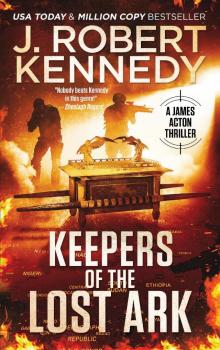 Keepers of the Lost Ark
Keepers of the Lost Ark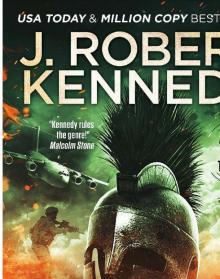 The Cylon Curse
The Cylon Curse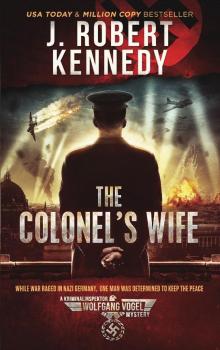 The Colonel's Wife
The Colonel's Wife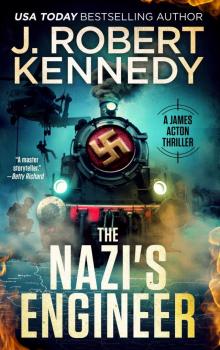 The Nazi's Engineer
The Nazi's Engineer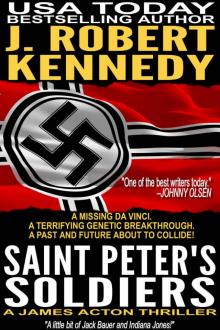 Saint Peter's Soldiers (A James Acton Thriller, Book #14)
Saint Peter's Soldiers (A James Acton Thriller, Book #14)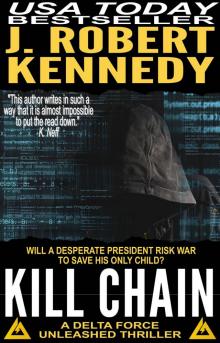 Kill Chain
Kill Chain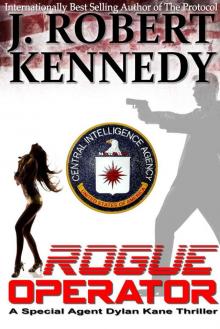 Rogue Operator
Rogue Operator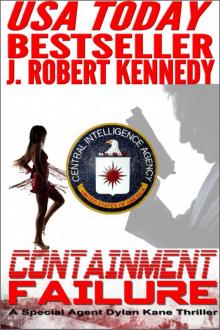 Containment Failure (A Special Agent Dylan Kane Thriller, Book #2)
Containment Failure (A Special Agent Dylan Kane Thriller, Book #2) The Lazarus Moment
The Lazarus Moment The Arab Fall (A James Acton Thriller, Book #6) (James Acton Thrillers)
The Arab Fall (A James Acton Thriller, Book #6) (James Acton Thrillers) Payback
Payback Flags of Sin - 05
Flags of Sin - 05 The Viking Deception
The Viking Deception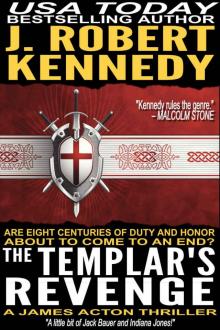 The Templar's Revenge (A James Acton Thriller, #19) (James Acton Thrillers)
The Templar's Revenge (A James Acton Thriller, #19) (James Acton Thrillers)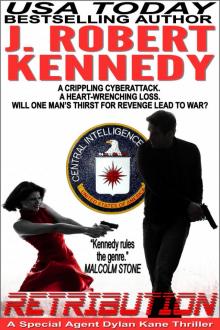 Retribution - A Special Agent Dylan Kane Thriller Book #7
Retribution - A Special Agent Dylan Kane Thriller Book #7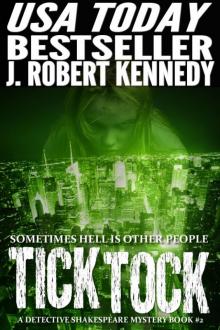 Tick Tock (A Detective Shakespeare Mystery, Book #2)
Tick Tock (A Detective Shakespeare Mystery, Book #2) Blood Relics (A James Acton Thriller, #12)
Blood Relics (A James Acton Thriller, #12)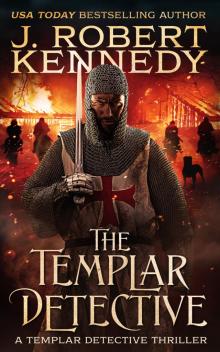 The Templar Detective
The Templar Detective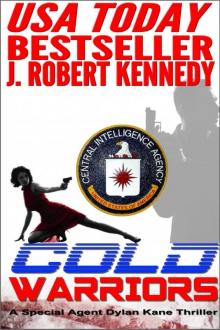 Cold Warriors (A Special Agent Dylan Kane Thriller, Book #3)
Cold Warriors (A Special Agent Dylan Kane Thriller, Book #3) Wages of Sin (A James Acton Thriller, #17) (James Acton Thrillers)
Wages of Sin (A James Acton Thriller, #17) (James Acton Thrillers) The Templar Detective and the Parisian Adulteress
The Templar Detective and the Parisian Adulteress Pompeii's Ghosts (A James Acton Thriller, #9)
Pompeii's Ghosts (A James Acton Thriller, #9) Raging Sun (A James Acton Thriller, #16) (James Acton Thrillers)
Raging Sun (A James Acton Thriller, #16) (James Acton Thrillers) The Riddle (A James Acton Thriller, Book #11)
The Riddle (A James Acton Thriller, Book #11)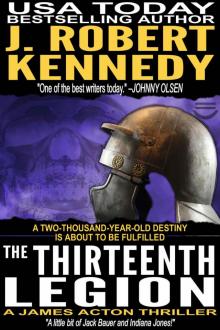 The Thirteenth Legion (A James Acton Thriller, #15) (James Acton Thrillers)
The Thirteenth Legion (A James Acton Thriller, #15) (James Acton Thrillers) Wrath of the Gods (A James Acton Thriller, #18) (James Acton Thrillers)
Wrath of the Gods (A James Acton Thriller, #18) (James Acton Thrillers) Sins of the Titanic (A James Acton Thriller, #13)
Sins of the Titanic (A James Acton Thriller, #13) Amazon Burning (A James Acton Thriller, #10)
Amazon Burning (A James Acton Thriller, #10)